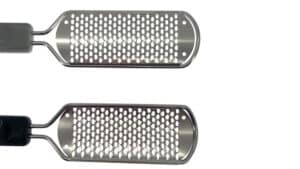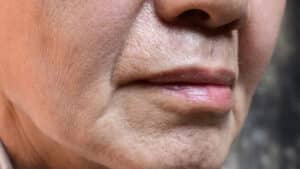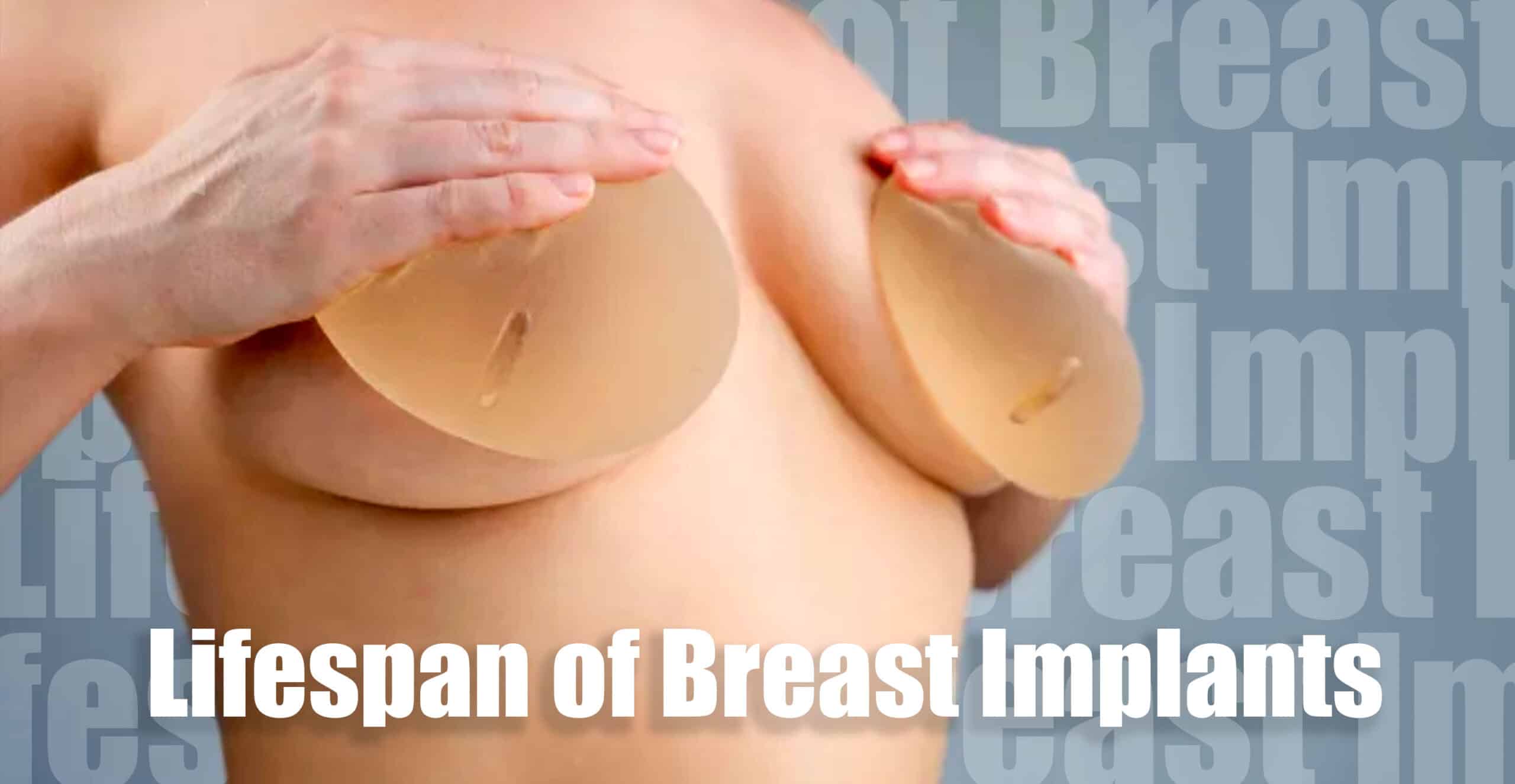
- March 9, 2023
- 6:55 pm
The Surprising Lifespan of Breast Implants: You Won’t Believe It!
Table of Contents
The lifespan of breast implants is a topic of great interest and concern for many women, and the answer may surprise you. In this article, we will explore the surprising lifespan of breast implants and reveal what you need to know to keep them looking and feeling their best. From the factors that can impact the longevity of your implants to the signs that it’s time for a replacement, we will cover everything you need to know about the lifespan of breast implants. So sit back, relax, and prepare to be amazed by what you learn!
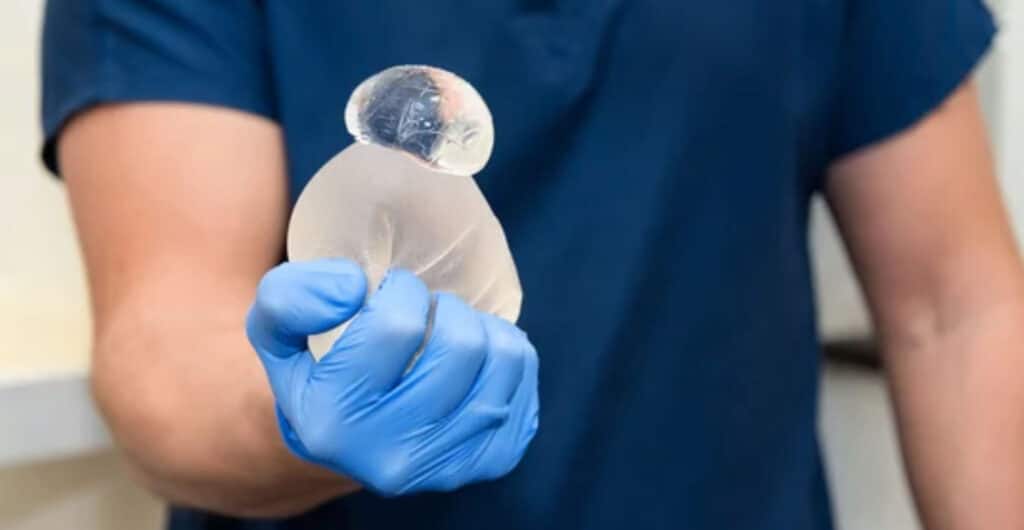
What are the factors that can affect the Lifespan of Breast Implants?
There are many factors that can affect the Lifespan of Breast Implants, including:
- Type of implant: Saline implants are typically less durable than silicone implants, and may have a shorter lifespan.
- Placement: Implants placed above the muscle may experience more movement and stress, which can contribute to wear and tear over time.
- Size: Larger implants may put more stress on the breast tissue and skin, potentially leading to complications and shorter lifespan.
- Age: Older implants may be more likely to rupture or leak, and may need to be replaced sooner.
- Lifestyle factors: Certain lifestyle factors, such as smoking or significant weight fluctuations, can increase the risk of complications and reduce the lifespan of breast implants.
- Trauma: Injuries to the chest area, such as those sustained in a car accident or during sports, can damage breast implants and shorten their lifespan.
- Implant quality: The quality of the implant itself can also affect its lifespan, with higher-quality implants typically lasting longer.
It’s important to note that every woman’s experience with breast implants is unique, and there is no way to predict exactly the Lifespan of Breast Implants. Regular check-ups with a plastic surgeon can help identify any issues early on and ensure the best possible outcomes for women with breast implants.
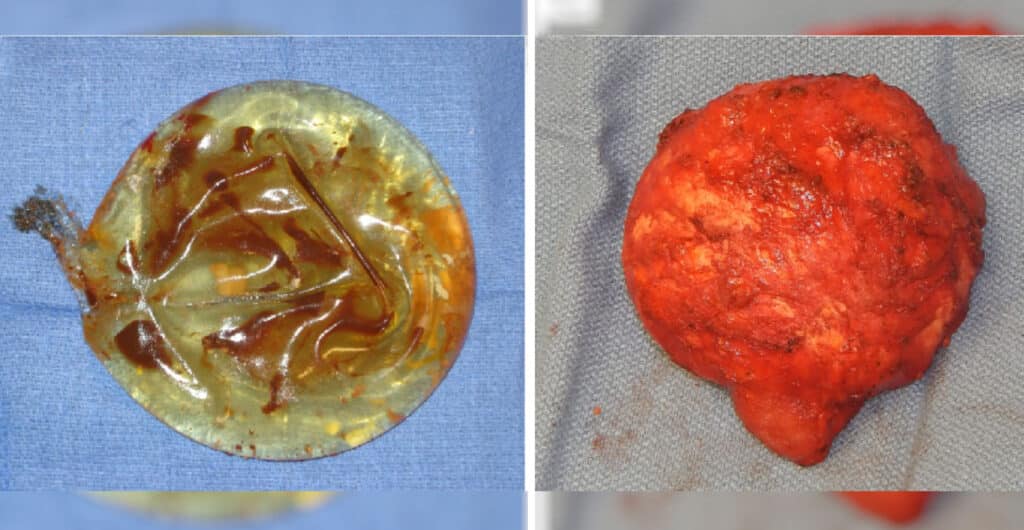
Are there any signs that indicate that breast implants need to be replaced?
| Signs that may indicate breast implants need to be replaced |
|---|
| Changes in breast appearance, including size, shape, or symmetry |
| Capsular contracture, which can cause breast distortion or discomfort |
| Rupture or leakage of the implant |
| Pain or discomfort in the breasts |
| Implant age of 10 years or more |
| Implant malposition or displacement |
| Infection or other complications |
| Wrinkling or rippling of the implant |
| Hardness or firmness of the implant |
| Seroma or fluid buildup around the implant |
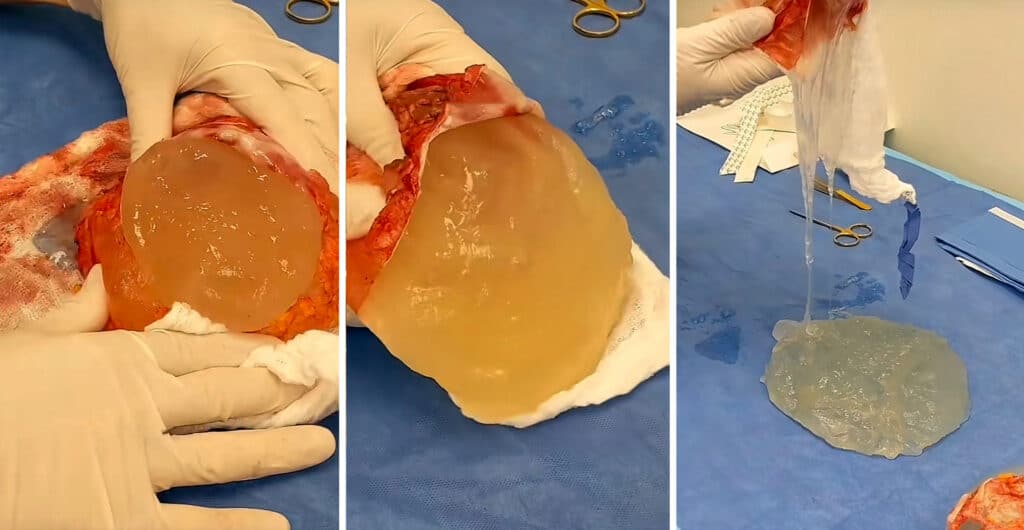
Can breast implants rupture or leak, and if so, how long do they typically last before requiring replacement?
Yes, breast implants can rupture or leak, although the likelihood of this happening varies depending on factors such as the type of implant and how long it has been in place.
Both saline and silicone gel implants can rupture or leak, although the symptoms and treatment options may differ.
Saline implants typically deflate quickly when they rupture, causing the breast to appear smaller or misshapen. This can happen suddenly, or gradually over time. When a saline implant ruptures, it needs to be removed and replaced as soon as possible to avoid any health risks associated with the deflated implant.
Silicone gel implants may also rupture or leak, although the symptoms are often less noticeable. This is because the gel can sometimes stay in the implant capsule, or migrate to nearby tissues. However, some women may notice changes in breast shape or firmness, or experience pain or tenderness in the breast. If a silicone gel implant ruptures or leaks, it should be removed and replaced as soon as possible to avoid any potential health risks.
It’s important to note that there is no set timeframe for when breast implants may require replacement. While some women may experience complications or need replacement within a few years of getting implants, others may have implants that last for decades without any issues. Regular check-ups with a plastic surgeon can help identify any issues early on and ensure the best possible outcomes for women with breast implants.
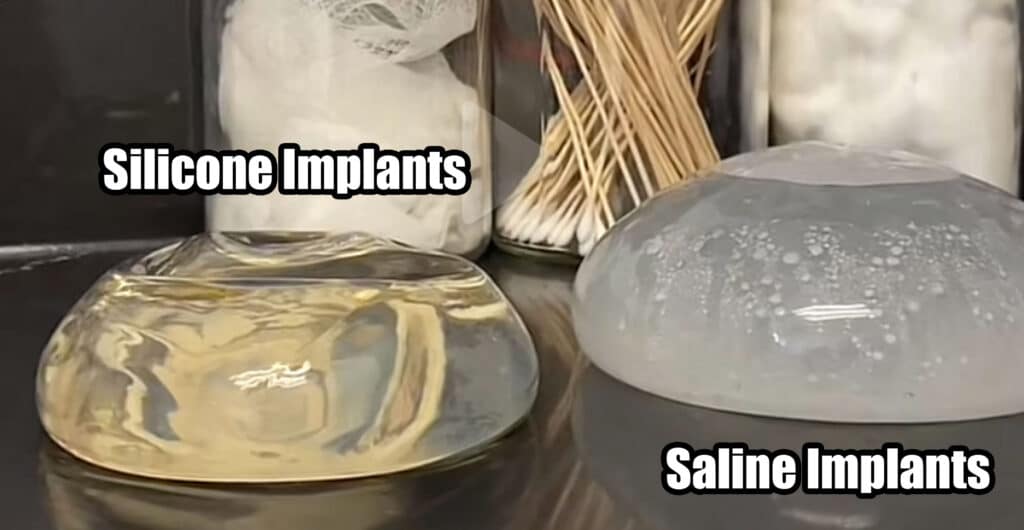
Are there different types of breast implants with varying lifespans?
Yes, there are different types of breast implants with varying lifespans. The two main types of breast implants are saline implants and silicone implants.
Saline implants are filled with sterile saltwater and have a silicone outer shell. They tend to have a shorter lifespan than silicone implants, with an average lifespan of around 10 years. However, some saline implants may last longer without issues.
Silicone implants are filled with a silicone gel and also have a silicone outer shell. They tend to be more durable than saline implants and have a longer lifespan, with an average lifespan of around 15 years or more. However, like saline implants, some silicone implants may last longer without issues.
In addition to these two main types, there are also other types of breast implants, such as gummy bear implants, which are a type of silicone implant with a more cohesive gel filling. These implants may have a longer lifespan than traditional silicone implants.
Is it common for women to have their breast implants replaced after a certain period of time, even if there are no complications?
Yes, it is common for women to have their breast implants replaced after a certain period of time, even if there are no complications. This is because breast implants are not designed to last a lifetime and may need to be replaced at some point.
The American Society of Plastic Surgeons recommends that women with breast implants have them checked by a plastic surgeon at least once a year to ensure that they are functioning properly and to monitor for any potential complications. During these check-ups, the plastic surgeon may recommend replacing the implants if they are approaching the end of their lifespan, even if there are no complications.
Additionally, some women may choose to have their implants replaced for personal reasons, such as wanting a different size or shape of implant, or simply wanting to refresh their appearance. In these cases, the decision to replace the implants is entirely up to the individual and their plastic surgeon.

Are there any precautions women can take to prolong the lifespan of their breast implants?
| Precautions | Prolong Lifespan of Breast Implants |
|---|---|
| Choose a reputable and experienced plastic surgeon | The skill and experience of the plastic surgeon can have a significant impact on the success of the surgery and the longevity of the implants. |
| Follow all pre- and post-operative instructions | This includes avoiding certain medications, quitting smoking, and following all activity and movement restrictions. |
| Maintain a healthy lifestyle | This includes eating a healthy diet, exercising regularly, and avoiding smoking and excessive alcohol consumption. |
| Attend regular check-ups with a plastic surgeon | Regular check-ups can help identify any issues early on and ensure the best possible outcomes for women with breast implants. |
| Monitor for changes in breast appearance | Women should be aware of changes in the size, shape, or symmetry of their breasts and report any concerns to their plastic surgeon. |
| Avoid trauma to the chest area | Trauma to the chest area can damage the implants and increase the risk of rupture or leakage. |
| Be aware of implant warranties | Some implant manufacturers offer warranties that cover the cost of replacement surgery if the implants rupture or leak within a certain |

